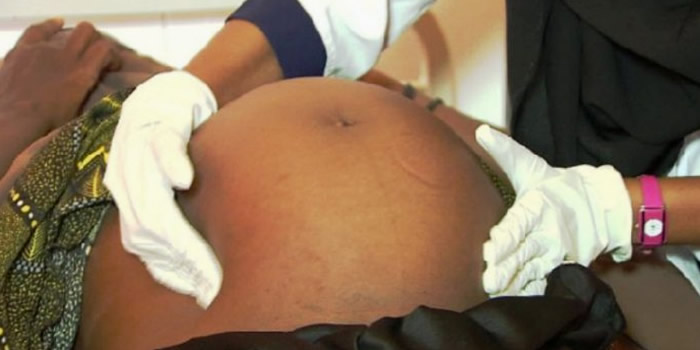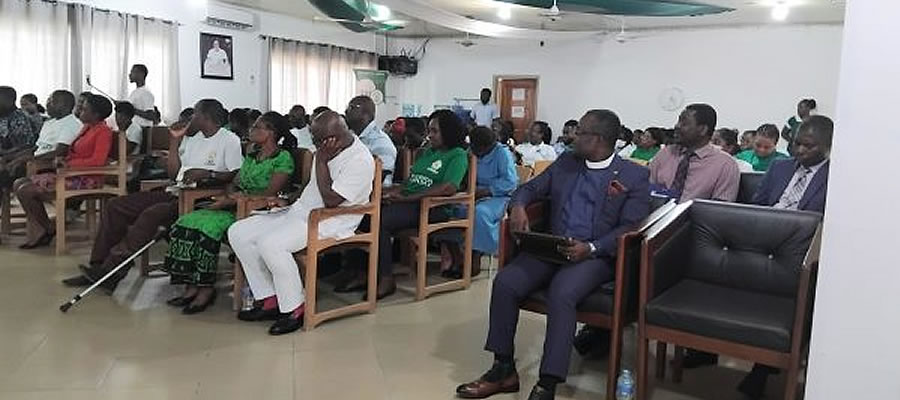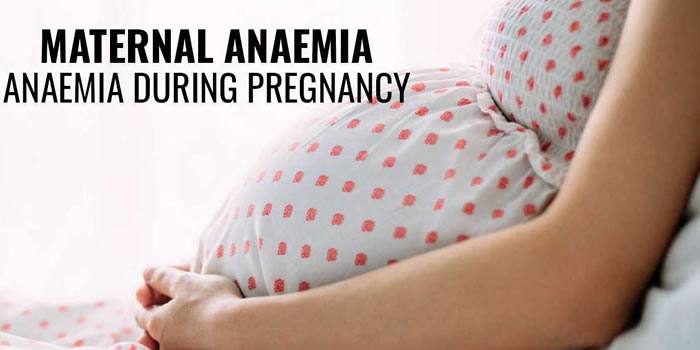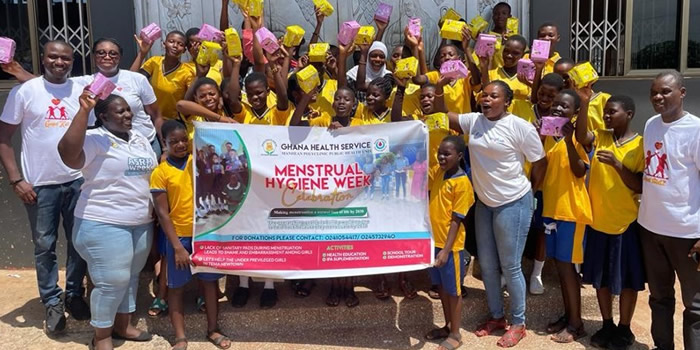

HEALTH
Tema Metro records slight improvement in anaemia in pregnancy
The Tema Metropolitan Health Directorate recorded a slight improvement in anaemia in pregnancy in the first quarter of 2023, as all indicators saw some decrease, Mr. Samuel Atuahene Antwi, the Metro Nutritionist, has disclosed.

Date Created : 5/18/2023 12:00:00 AM : Story Author : Laudia Sawer/Ghanadistricts.com
He said there was a 4.5 percent decrease in the percentage of pregnant women who were anaemic at registration and a 1.18 percent dip in the percentage of severe anaemia at registration.
Mr. Antwi made the remarks at the weekly "Your Health! Our Collective Responsibility," a Ghana News Agency Tema Regional Office initiative aimed at promoting health-related communication and providing a platform for health information dissemination to influence personal health choices through improved health literacy.
The Tema Regional Office of the Ghana News Agency launched the public health advocacy platform "Your Health! Our Collective Responsibility" to examine the components of four health communication approaches: informing, instructing, persuading, and promoting.
Mr. Antwi said 0.9 percent of pregnant women were found to be anaemic at 36 weeks of gestation.
He, however, expressed worry that there was a sharp decrease of 21.4 percent in the antenatal clinic (ANC) registrants who received Iron and Folic Acid (IFA) supplementation for three months, a situation he said was being investigated to ascertain the cause.
Giving the actual figures, he said one case of severe anaemia was recorded at the Tema Regional Hospital at the first visit, while 816 cases of moderate anaemia, comprising 559 at the Tema Regional Hospital and 257 from Manhean Polyclinic, were seen at the first visit.
A total of 337 cases of anaemia in pregnancy for repeat visits were documented in the first quarter of 2023; this consisted of 325 at Tema Regional Hospital, eight at Tema Health Centre, and four at Manhean Polyclinic.
Mr. Antwi called for cooperation among the units involved in maternal nutrition services at the various health institutions in the metropolis to enable the directorate’s efforts to improve anaemia in pregnancy to become a reality.
He said midwives should refer pregnant women to the nutrition unit for counselling and education, as that forms part of the protocol, which indicates that pregnant women must receive at least one counselling session in each trimester.
He said with respect to the general wellbeing of pregnant women, pregnancies often affected the normal functioning of the body, such as loss of appetite or cravings for non-nutritious or non-food items.
He said consuming such items might prevent the consumption of nutritious food; therefore, there was a need to support them in making healthy choices and making good combinations based on what they had and could afford.
Mr. Antwi said some of them have low haemoglobin (HB) and needed to be supported by the nutritionists to build their own blood since haemorrhage could occur in some deliveries.
"HB below 11m/dl needs so much support; supplementation with iron and folic acid comes to add on whatever nutrient intake," he said.
According to him, the nutritionists follow the progress of all their clients till delivery, adding that some of them with low HB have to repeatedly repeat their tests during the pregnancy period for observation and support.










 facebook
facebook
 X
X
 Youtube
Youtube
 instagram
instagram
 +233 593 831 280
+233 593 831 280 0800 430 430
0800 430 430 GPS: GE-231-4383
GPS: GE-231-4383 info@ghanadistricts.com
info@ghanadistricts.com Box GP1044, Accra, Ghana
Box GP1044, Accra, Ghana